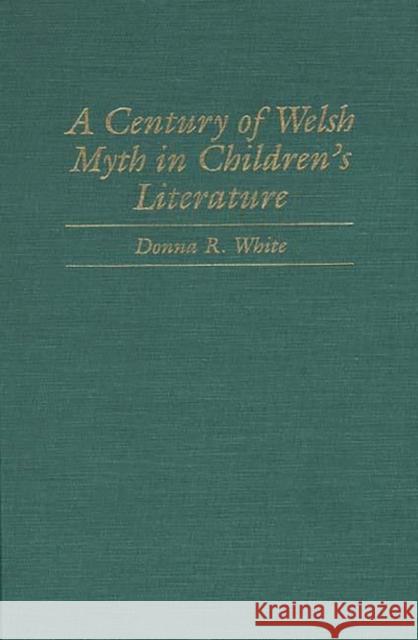A Century of Welsh Myth in Children's Literature » książka
A Century of Welsh Myth in Children's Literature
ISBN-13: 9780313305702 / Angielski / Twarda / 1998 / 176 str.
Myth, legend, and folklore have been entrenched in children's literature for several centuries and continue to be popular. Some of the most ancient traditional tales still extant come from the Celtic cultures of France and the British Isles, whose languages are among the oldest in Europe. Among these tales are four native Welsh legends collectively known as the Mabinogi, which were first translated into English in 1845 by Lady Charlotte Guest. Numerous children's books have been based on the Mabinogi since then, and many have received awards and critical acclaim. Because these books are written for children, they are not necessarily faithful retellings of the original tales. Instead, authors have had to select certain elements to include and others to exclude. This book examines how authors of children's fantasy literature from the 19th century to the present have adapted Welsh myth to meet the perceived needs of their young audience.
The volume begins with a summary of the four principle tales of the Mabinogi: "Pwyll Prince of Dyfed," "Branwen Daughter of Llyr," "Manawydan Son of Llyr," and "Math Son of Mathonwy." Books based on the Mabinogi generally fall into two categories: retellings of the myths, and original works of fantasy partially inspired by the Welsh tales. Beginning with Sidney Lanier's "The Boy's Mabinogion," the first part of this book examines versions of the myths published for children between 1881 and 1988. The second part discusses imaginative literature that borrows elements from the Mabinogi, including Alan Garner's "The Owl Service," which won a Carnegie medal, and Lloyd Alexander's Chronicles of Prydain, the final volume of which received the ALA Newbery Award for outstanding children's book.











